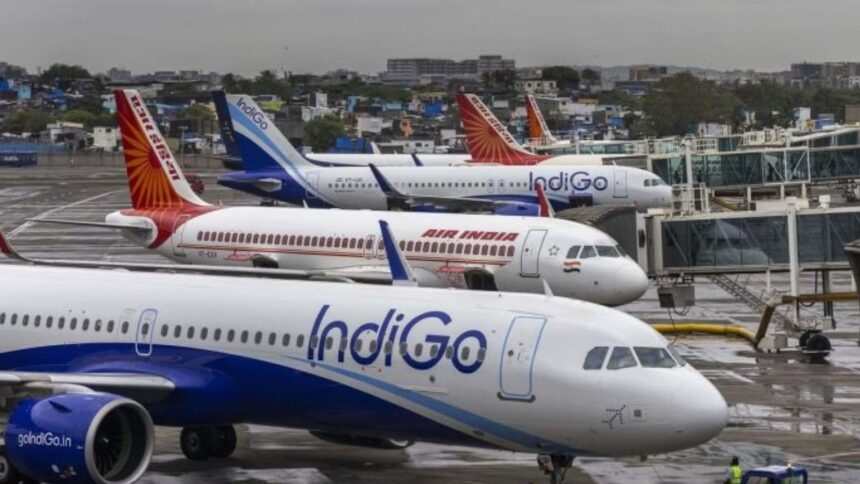Amid the backlash in India over Turkey’s support for Islamabad in the India-Pakistan conflict, India’s largest airline IndiGo on Wednesday said that the carrier’s codeshare partnership with Turkish Airlines and the operation of damp-leased wide-body jets between the two countries are fully compliant with all Indian rules and regulations, and are strictly within the framework of the India-Turkey bilateral air services agreement.
On the upcoming renewal of the damp lease arrangement, IndiGo CEO Pieter Elbers said that it is for the Indian government to decide, and the airline will have fallback plans in case of changes in the current arrangement.
There have been calls from some quarters in India for IndiGo to end its relationship with Turkish Airlines, including its damp lease of two wide-body jets of the Istanbul-based carrier, with which IndiGo operates its flights to Istanbul from and . These planes are high-density Boeing 777 aircraft with over 500 seats apiece, allowing IndiGo to carry significantly more passengers than what its regular narrow-body aircraft can carry. The codeshare agreement also enables the Indian carrier to offer connections to over 40 destinations in Europe and North America on the Turkish Airlines network via Istanbul.
The lease arrangement is ending this month, and the airlines cannot go ahead with a renewal unless New Delhi greenlights it. Following India’s decision to cancel the security clearance of Turkey-headquartered airport ground handling major Celebi, speculation is rife that the IndiGo-Turkish Airlines damp lease renewal may not receive a favourable decision from the government.
The past few days have seen a growing clamour for a boycott of Turkey and review of Turkish firms’ presence in India in the wake of Operation Sindoor. Apart from in the recent India-Pakistan military conflict, widespread use of Turkish drones by Pakistan in operations against India has added to the disapproval for Turkey in India.
“The flights between India and Turkey are governed and are within the framework of the air service agreement between the two nations. Two, the operations which are taking place are fully compliant and in line, not only with the regulatory framework, but also with all the rules and regulations from the (Indian) government…We still have lots and lots of Indian customers booked on these flights, mostly connecting over at Istanbul and flying to other parts of the world for their travel needs,” Elbers said in an investor call on Wednesday.
“On the (damp lease) renewal, that’s up to the government to decide. We have had this operation in place for some time now. It has served the Indian customers well…The government has a view on what is the overall landscape and the overall setting and the holistic picture, and we operate within that guidance and framework,” Elbers added.
In response to a question on IndiGo’s options if the damp lease arrangement with Turkish Airlines is not renewed beyond May, Elbers said: “As a good airline, we make sure that we have fallback plans in case of changes. And I think we have demonstrated that over the last years, be it domestic, be it International…We’ll deal with it, and we adjust our network accordingly”.
In the past, IndiGo has operated its flights to Istanbul from Delhi and Mumbai using its narrow-body Airbus A320neo and A321neo aircraft whenever the Boeing 777 jets faced technical issues or the lease arrangement was not in place. For instance, for about two weeks in November, IndiGo operated its Turkey flights using narrow-body aircraft as the process for renewal of the damp lease of the Boeing 777 planes was underway at the time.
The air services agreement between India and Turkey allows carriers of both countries to operate a total of 56 flights a week between India and Turkey—28 flights from India to Turkey and 28 in the opposite direction—without a cap on the number of seats on each flight. Turkish Airlines and IndiGo have split the allocation between themselves.
As the bilateral air services pact does not have a cap on seats, the larger the aircraft, the better it is for IndiGo given the high demand on India-Turkey routes, which is largely due to Istanbul being a global transit hub. That is the reason why the Indian airline, after initially operating its Istanbul flights using its own narrow-body fleet, switched over to a damp lease arrangement with Turkish Airlines for wide-body aircraft with more than twice the capacity of IndiGo’s own narrow-body jets.








